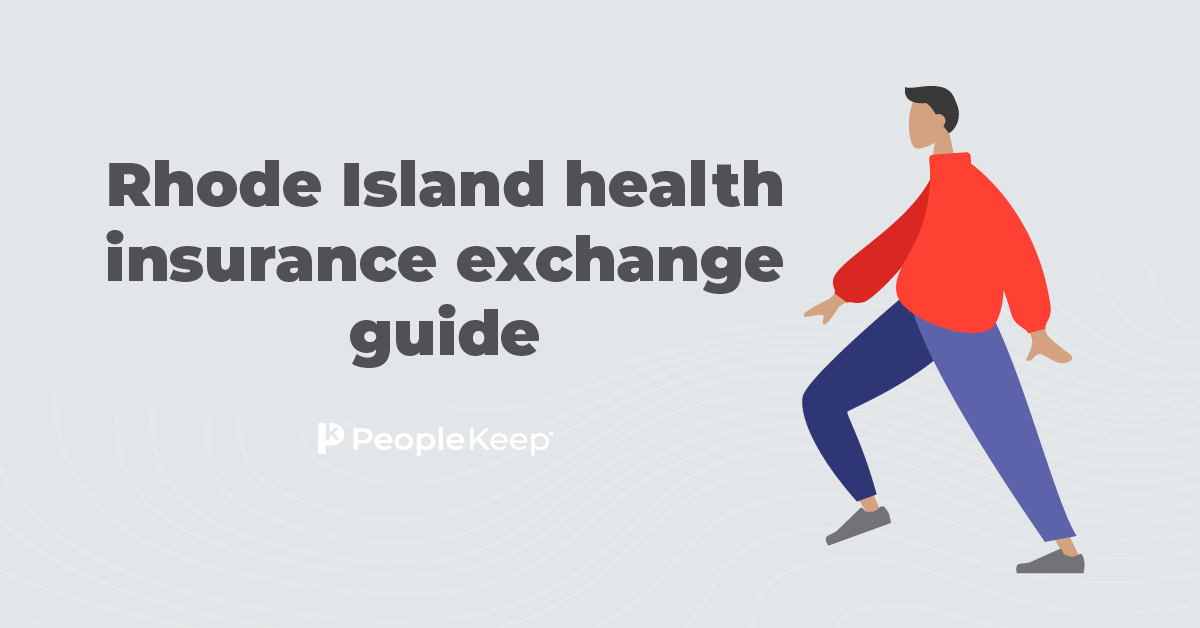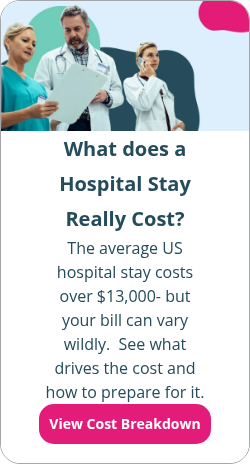The role of AI in healthcare
By Holly Bengfort on March 6, 2024 at 5:44 AM
Artificial intelligence (AI) has become integral to many industries, including the healthcare sector. In recent years, AI has revolutionized healthcare by improving patient outcomes, streamlining processes, and reducing costs. From providing more accurate diagnosis and treatment to patient care and administrative tasks, AI is transforming how doctors, insurers, and other providers deliver healthcare.
In this article, we'll go over the role AI plays in healthcare and health benefits today.
Takeaways from this blog post:
- AI-powered deep learning algorithms are enhancing the accuracy of disease diagnosis and personalized treatment options for patients, ultimately improving health outcomes and reducing healthcare costs.
- AI is revolutionizing the healthcare industry, with applications ranging from personalized insurance recommendations to streamlining claims processing and authorization tasks.
- While some Americans may feel uneasy about AI in healthcare, there’s widespread belief that it can reduce errors made by medical professionals and help reduce bias in healthcare.
What is artificial intelligence?
Artificial intelligence (AI) is a branch of computer science that enables machines to simulate human intelligence. AI can perform a variety of tasks, such as decision-making, visual perception, speech recognition, and natural language processing.
AI systems learn from data, identify patterns, and make decisions with minimal human intervention. These systems can range from simple algorithms to complex neural networks that mimic how the human brain works. AI has the potential to revolutionize industries and improve efficiency and productivity in various sectors, from healthcare to finance to transportation.
Artificial intelligence in healthcare
AI has been making significant strides in transforming how healthcare professionals diagnose, treat, and manage patient care.
Preventive care
AI can help promote healthier habits and empower individuals to take control of their well-being. As wearable devices like health and fitness monitors grow in popularity, patients can share real-time data with their healthcare professionals for health monitoring. There are also plenty of apps that focus on nutrition, exercise, sleep cycles, and mental health. These apps help people live healthy lifestyles.
When people take better care of their health from the start, they're less likely to develop common diseases like diabetes. As a result, they see the doctor less often. AI apps put people in control of their well-being and make them proactive managers of their health.
Diagnosis and treatment
One of the key roles of AI in the healthcare sector is in diagnosis and treatment. AI-powered deep learning algorithms can analyze large amounts of medical data, such as clinical images, scans, and electronic health records, to assist healthcare providers in making timely and accurate diagnoses. Harvard's School of Public Health1 suggests that utilizing AI for diagnostics could potentially decrease treatment expenses by 50% and enhance health results by 40%.
For example, AI can analyze medical images to detect abnormalities or assist in the early detection of diseases like cancer. This improves the accuracy of disease diagnosis and helps healthcare providers develop personalized treatment options for patients.
The American Cancer Society reports that many healthy women are misdiagnosed with cancer since a significant number of mammograms produce false results2. Doctors and technicians can now use AI technology to review and interpret mammograms much more quickly and accurately, leading to a reduction in unnecessary biopsies.
Drug discovery
Traditional drug discovery is time-consuming and expensive. According to Harvard Law School3, pre-clinical stages alone take three to six years and cost hundreds of millions to billions of dollars. AI tools are changing drug discovery, making the process faster and more efficient. It's trained on various datasets to better understand diseases and identify potential targets for treatment.
Several biotechnology companies are already using AI to their advantage. For example, Exscientia4 announced the first-ever AI-designed drug molecule to enter human clinical trials in early 2020. In February 2023, the U.S. Food and Drug Administration (FDA) granted its first Orphan Drug Designation to Insilico Medicine5 for a drug AI discovered and designed.
Surgical procedures
Healthcare professionals use AI robots in various healthcare settings, from basic laboratory functions to intricate surgical procedures. AI systems can quickly absorb vast amounts of information. Surgical robotics with AI can use this data efficiently, learning from thousands of surgeries in seconds. They can also reduce blood loss, infection risk, and post-surgery pain by working around sensitive organs and tissues. Along with surgery, AI robots are used in hospitals, medical practices, and healthcare clinics for rehabilitation and physical therapy.
Patient care and communication
AI is also playing a crucial role in effective care. Virtual health assistants powered by AI can provide patients with personalized health recommendations, reminders for medications, and support for managing chronic conditions. These virtual assistants can also help patients access healthcare services remotely, reducing the need for in-person visits and improving access to care for patients in remote or underserved areas.
Additionally, AI can improve communication between patients and healthcare professionals. A recent study6 found that 83% of patients feel communication with providers needs improvement. With AI technology like natural language processing, predictive analytics, and speech recognition, healthcare organizations can communicate more effectively with patients. For example, AI can provide detailed treatment options to help healthcare providers have more informed conversations with patients for better decision-making.
Administrative tasks
In addition to diagnosis and treatment, healthcare administrators can use AI to streamline administrative tasks. According to Accenture7 research, technology augmentation like AI or automation could reinvent 70% of healthcare workers’ tasks.
AI-powered tools can automate processes like scheduling appointments, processing insurance claims, and managing medical records. By reducing the administrative burden on medical professionals, AI enables them to focus more on patient care and improve overall efficiency in healthcare delivery.
Artificial intelligence in health benefits
AI is also changing the health insurance industry. Health insurance companies are using AI to predict risk and improve coverage for individual needs. By taking advantage of AI, insurers are enhancing their products and customer service.
For example, KindHealth8 utilizes AI technology to analyze health history, current insurance coverage, and budget to offer personalized insurance recommendations to their customers. By identifying suitable plans within the insurance marketplace, KindHealth aims to make coverage more tailored, cost-effective, and flexible. Through data analysis and pattern recognition, AI generates a customized solution to protect consumers from high medical costs, ensuring a positive and comprehensive experience.
Here are some other ways AI is enhancing the health insurance industry9:
- AI can analyze vast amounts of data, including clinical images, clinical research trial data, and medical claims. It can identify patterns and generate insights that may be difficult for human experts to discover manually. This can help in the early detection of patterns related to fraud and claims utilization, potentially leading to significant savings for insurers.
- AI can use machine learning to analyze health insurer data and electronic health records for insights into medical claim costs. These insights are used for network management, claims processing, pricing strategies, and risk management.
- AI can streamline claims processing and authorization tasks by following established rules and analyzing data for faster, more accurate decision-making.
- AI can help businesses save time and money by automating repetitive tasks and allowing employees to focus on more complex work.
- AI chatbots are utilized for various purposes, including enhancing member engagement, managing customer service, providing triage services, directing individuals toward appropriate specialties, and scheduling appointments. These chatbots act as gatekeepers and help reduce administrative costs.
- AI is being used to enhance remote and telehealth services for a variety of medical purposes, including triage, primary care, disease management, medication refills, interpretation, and diagnostics.
The future of artificial intelligence in healthcare
The AI healthcare market is projected to grow from $11 billion in 2021 to $187 billion in 2030, according to Statista10. This will lead to significant changes in the operations of medical providers, hospitals, pharmaceutical and biotechnology companies, and other stakeholders in the healthcare industry.
However, the growing popularity of AI in healthcare makes many Americans uneasy. The majority of people trust human experts alone. A Pew Research Center Survey11 found that 60% of people would feel uncomfortable if their healthcare professional relied on AI to do things like diagnose diseases and recommend treatments, while 39% of people say they would feel comfortable with this.
That said, Americans have positive feelings toward AI in other health outcomes. About 40% believe using AI in health and medicine would reduce rather than increase the number of mistakes made by medical professionals. Additionally, most Americans believe that using AI in healthcare would help reduce racial and ethnic bias.
Conclusion
Artificial intelligence (AI) has the potential to analyze vast amounts of data, identify patterns, and assist in making accurate and timely decisions in healthcare. As AI technology continues to advance, we can expect to see even more innovative applications of AI in the healthcare industry, ultimately leading to a more personalized and effective healthcare experience for patients.
1. https://www.hsph.harvard.edu/ecpe/programs/ai-for-health-care-concepts-and-applications/?gclid=cjwkcajwx46tbhbheiwara_djpivzt43u3rvveax4p7j3gjz4rknn-99z-4adr_3cniltlqubnkrdbocqi0qavd_bwe2. https://www.pwc.com/gx/en/industries/healthcare/publications/ai-robotics-new-health/transforming-healthcare.html
3. https://blog.petrieflom.law.harvard.edu/2023/03/20/how-artificial-intelligence-is-revolutionizing-drug-discovery/
4. https://www.bbc.com/news/technology-51315462
5. https://www.genengnews.com/news/insilico-gains-fdas-first-orphan-drug-designation-for-ai-candidate/
6. https://www.simbo.ai/blog/index.php/2021/09/23/how-ai-technologies-improve-the-patient-experience/
7. https://www.accenture.com/us-en/insights/health/reinvent-care-delivery-solve-clinical-shortage?c=acn_glb_reinventingcaremediarelations_13389769&n=mrl_0123
8. https://kindhealthatx.medium.com/artificial-intelligence-provides-benefits-across-the-medical-landscape-9a22c6b232a9
9. https://www.rgare.com/knowledge-center/article/a.i.-and-health-insurance
10. Statista
11. https://www.pewresearch.org/short-reads/2023/11/21/what-the-data-says-about-americans-views-of-artificial-intelligence/
Check out more resources
See these related articles

Rhode Island health insurance exchange guide
The Rhode Island Health Insurance Exchange, called HealthSource RI, aims to connect Rhode Islanders and small businesses to affordable health insurance.

Reconciliation of Individual Health Insurance Subsidy Payments
How will the reconciliation of the individual health insurance subsidy payments work? Overview of the reconciliation for health insurance subsidies.

What are health insurance rewards programs, and how do they impact HRAs?
In this article, we'll explain how health insurance rewards programs work and how they impact benefits like health reimbursement arrangements (HRAs).



